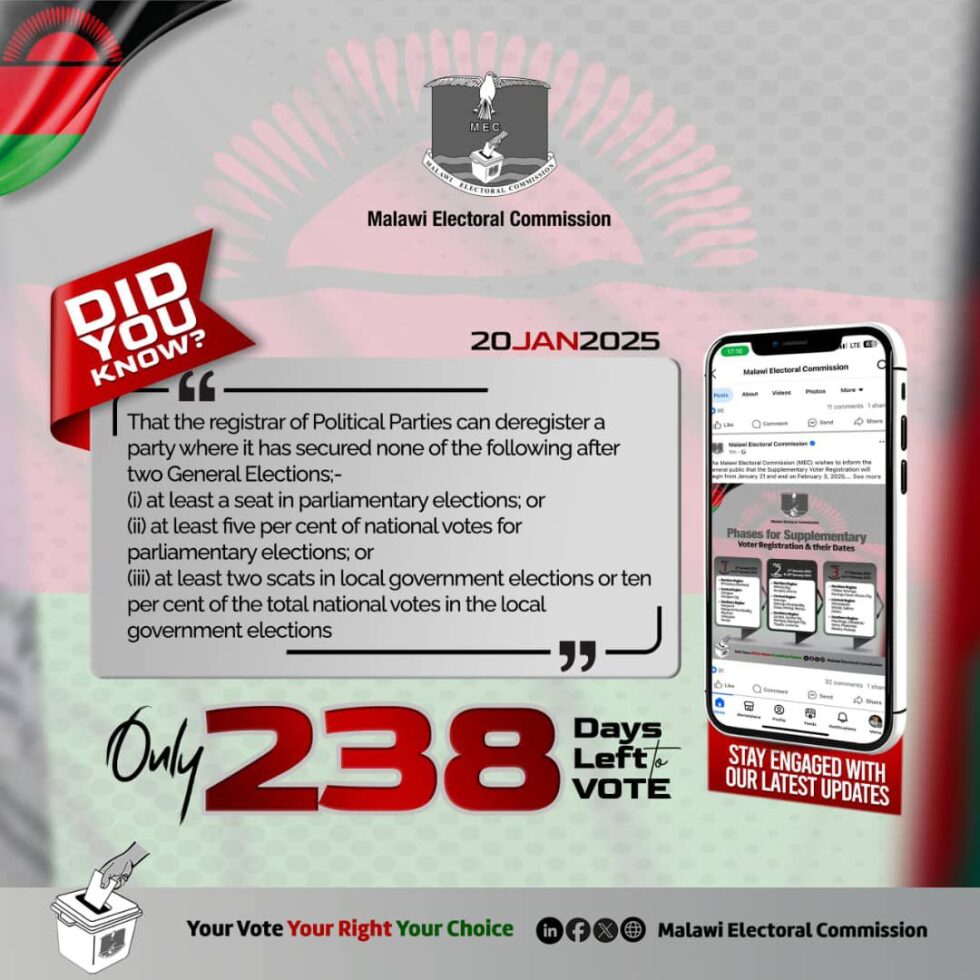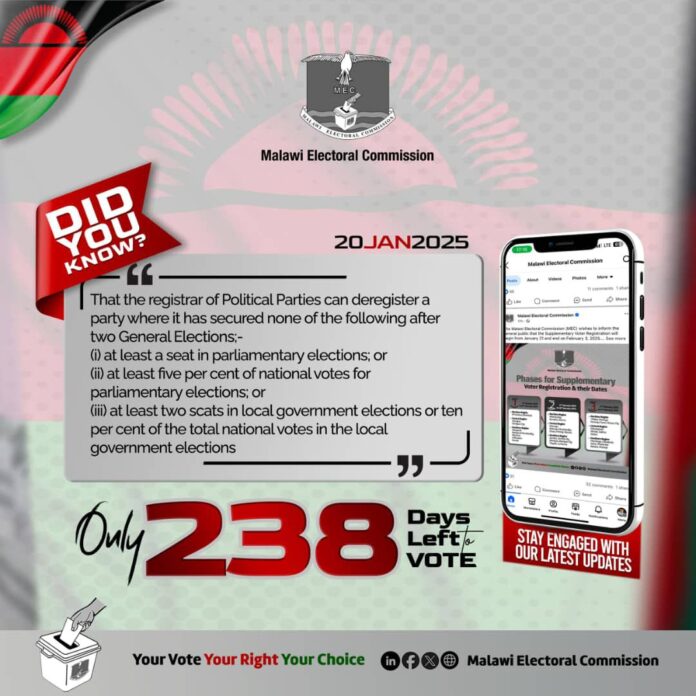By Burnett Munthali
As the countdown to Malawi’s 2025 general elections narrows to 238 days, it is crucial for citizens to remain informed about the country’s political framework. The Registrar of Political Parties, a key institution in ensuring accountability within Malawi’s democracy, holds the authority to deregister political parties that fail to meet specific benchmarks after two consecutive general elections.
According to the Political Parties Act, a political party risks deregistration if it does not secure at least one parliamentary seat, achieve five percent of the national vote in parliamentary elections, or win at least two seats in local government elections or ten percent of the total national votes in local government elections. These thresholds are not just bureaucratic formalities—they reflect the need for political parties to demonstrate substantial support and relevance in the democratic process.

With over 50 registered political parties in Malawi, the 2025 general elections will serve as a critical test for their survival. Many parties, particularly smaller or regional entities, face an uphill battle to remain active players on the political stage. The law ensures that parties that cannot mobilize sufficient public support and participation are weeded out, allowing the political landscape to be dominated by those with genuine national or local appeal.
As Malawians prepare to cast their votes in May, it is a reminder that democracy is not just about numbers; it is about active engagement and the expression of the people’s will. Staying informed and participating in the electoral process is vital. Every vote cast strengthens democracy and plays a role in shaping the nation’s future.



